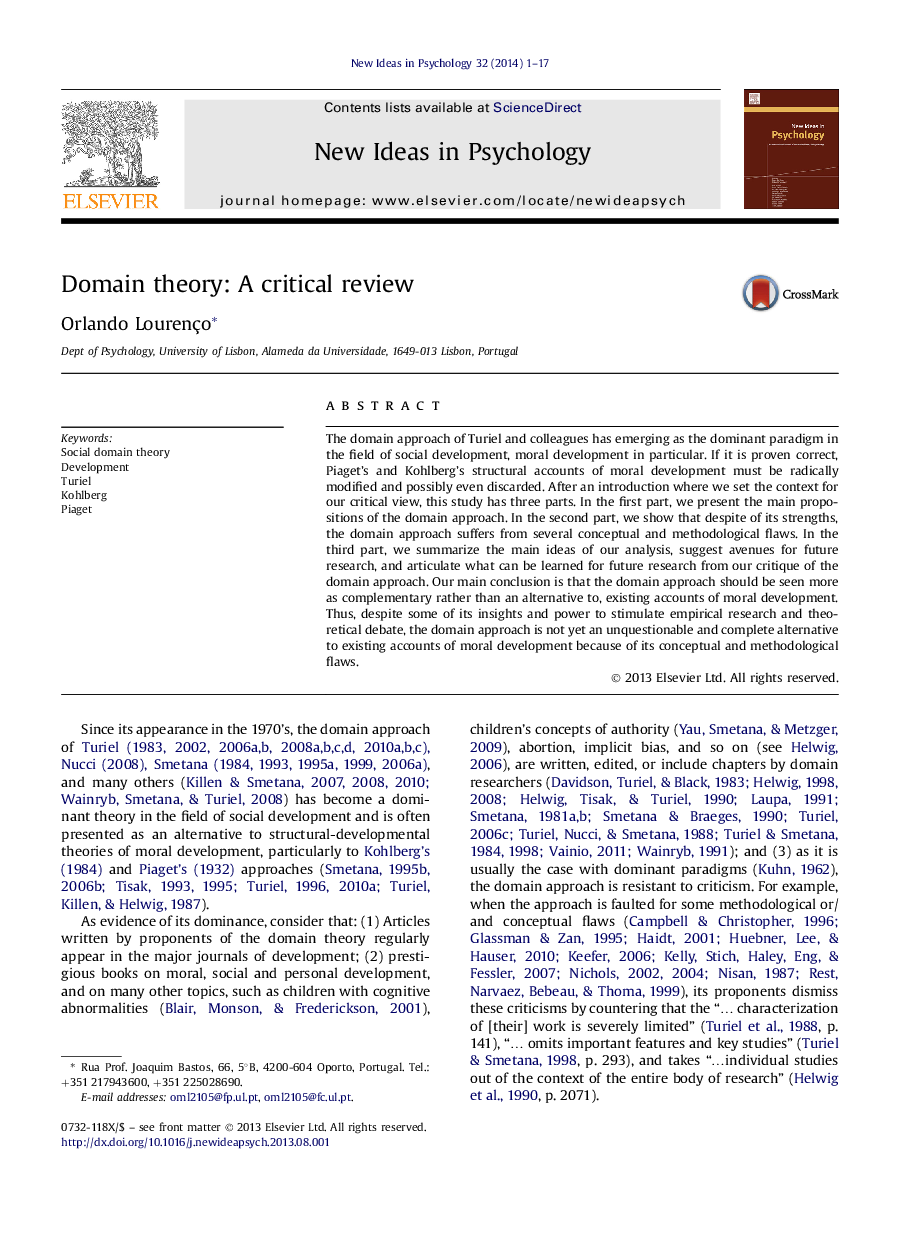| Article ID | Journal | Published Year | Pages | File Type |
|---|---|---|---|---|
| 331524 | New Ideas in Psychology | 2014 | 17 Pages |
The domain approach of Turiel and colleagues has emerging as the dominant paradigm in the field of social development, moral development in particular. If it is proven correct, Piaget's and Kohlberg's structural accounts of moral development must be radically modified and possibly even discarded. After an introduction where we set the context for our critical view, this study has three parts. In the first part, we present the main propositions of the domain approach. In the second part, we show that despite of its strengths, the domain approach suffers from several conceptual and methodological flaws. In the third part, we summarize the main ideas of our analysis, suggest avenues for future research, and articulate what can be learned for future research from our critique of the domain approach. Our main conclusion is that the domain approach should be seen more as complementary rather than an alternative to, existing accounts of moral development. Thus, despite some of its insights and power to stimulate empirical research and theoretical debate, the domain approach is not yet an unquestionable and complete alternative to existing accounts of moral development because of its conceptual and methodological flaws.
